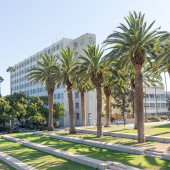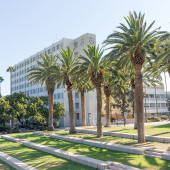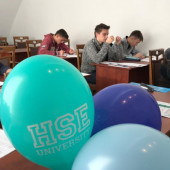Searching for the best school to study abroad? Change your strategy and chose the city first. Surely you've checked several rankings with very different results. If you’re still in doubt, then this study will help you considerably.
Looking at the universities heading the latest world rankings, the “QS Best Student Cities” study, powered by the education company QS, also evaluated life cost and quality levels, students diversity and employer activity in the respective cities. But there's more: the cost of a Big Mac (yes, that one) and of an Ipad was also one of the comparison points.
With all these qualities combined in only one study, it will be easier for you to find your future "academic nest" and ensure the success of your exchange trip.
Take a look at these 10 places before choosing the school you’re going to attend, and, if you’re still not feeling inspired, don’t forget that there are more 40 cities making the list and many others around the world waiting for you.
1. Paris
The picture above made it too easy to guess, wasn't it?
It has 17 institutions classified in the QS university ranking, two of them among the top 100. It is no secret that the “City of Light” is distinguished by its historical heritage and cultural activity - almost two thousand museums and monuments in the French capital - but also for hosting prestigious schools and companies in science and business.
Here, students benefit from small classes and intensive teaching, in addition to lower tuition fees.
This is the second time that Paris is leading the evaluation of QS, having won also in 2012.

2. London
In one of the most cosmopolitan cities around the world, you will never feel lonely: students from abroad are more than 100 thousand. With 18 institutions in the QS rankings and four in the top 10, this city hosts one of the most important collections worldwide – The British Library - being an attractive hub for international students and researchers.
In this important financial and artistic center, the only drawback is the tuition and rent cost, more expensive than in other cities in Europe or in the UK.

3. Singapure
It may not be as famous as the previous cities, but this Asian City-State is ranked as one of the most prosperous and with the lowest unemployment rate in the world. Therefore, we’re not surprised that its educational system had become so renowned in the recent years or that its graduates are so sought after in international markets. Singapore is densely populated, naturally diversified by its four official languages and the influences - educational and otherwise - from countries like China and India.
With two universities in the top 50 in the world, the only question moving Singapore away from the top is the high living cost.

4. Sydney
The most populated and better educationally classified of all Australian cities, scores from being one of the places with better life quality in the world. Bringing together large communities of international students and a wide range of universities, the good professional results of its graduates are also recognized worldwide.
Not being the capital, Sydney is Australia’s financial hub, featuring five universities in the QS ranking.

5. Zurich
The largest Swiss city and, currently, one of the wealthiest in Europe. Don’t be alarmed: it has been consistently named one of the world's best cities to live, not only for its safety and organization but also for its relatively reduced taxes. Therefore, it has become an attractive hub for students, saving in tuition fees, comparing with places such as like London or Sydney. For a city with this level of wealth, the disadvantages are the high living and rent costs.
Zurich has two colleges ranked among the top 100 in the world by QS.

6. Melbourne
It has been ranked as the world's most ‘liveable’ city, largely because of its economic stability, health care, cultural events and of course, educational quality. Like Sydney, it enjoys the coveted Australian lifestyle, being considered the country’s cultural center. Regarding the students diversity, this is the highest ranked city in the chart, also highlighted by its employers’ dynamic activity surrounding the students.
Melbourne only becomes less attractive if we think about tuition fees and other expenses that any student needs to contemplate.

7. Hong Kong
On the south coast of China, this densely populated city is seen as the Asian meeting point between East and West. Super financially developed, it provides excellent career opportunities and a truly global experience. With four universities ranked in the QS top 40, the disadvantages of studying in Hong Kong are the high renting prices. The remaining costs are not so problematic.

8. Boston
Here are located the two universities leading the QS chart. In fact, Greater Boston gathers a huge number of universities - some of them classified at the top of the educational rankings year after year - and it’s so much connected with cosmopolitan lifestyles as with cultural as historical values. Also a center for professional opportunities in the US, this city loses points due to its high living and tuition costs, although some universities offer financial support to candidates.

9. Montreal
First Canadian city listed at the QS ranking, we should not forget that this is a French-speaking place in Canada, hosting a large community of immigrants and international students. Therefore, cultural diversity is a must, with students taking advantage from plenty of festivals, concerts and other artistic events popping up everywhere. Although it is not a cheap city, Montreal is cheaper when compared to other cities mentioned in this analysis.

10. Munich
The beer capital, third largest German city, closes the top 10 of the QS Best Student Cities. Why? Because, apart from the fact that Germany is one of the most attractive non-English speaking countries for international students, this city also puts together several attractions that go beyond good university rankings: quality of life, famous nightlife, affordability and, of course, a privileged location, almost in the center of Europe.










